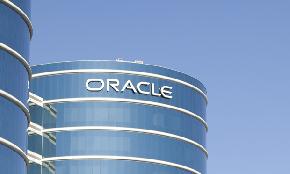Around the world, sustainability is becoming an increasing focus in the commercial real estate (CRE) space. Just this year, the UN released Transforming Our World, a roadmap for sustainable development which identifies 17 major goals to be achieved by 2030. These goals describe calls to action that focus on the need to improve efforts in development in economic, social and environmental areas, and include a significant emphasis on sustainability as an important component of development.
Market forces increasingly reward investments in the sustainable development and operation of buildings. Many studies, such as a report put out by Cleveland State University last year, show that optimizing the energy efficiency of an asset improves property values. Tenants are demanding energy efficient buildings that include green building features, such as higher quality lighting and improved indoor air quality. We’re seeing that tenants are increasingly willing to pay a premium for these green building attributes. In addition, there is a growing number of local and national regulations that require the benchmarking and disclosure if commercial buildings’ energy usage prior to selling, leasing, or financing. As a result, certifications that recognize a building’s energy performance, such as LEED and Energy Star, are increasingly valued by many investors, tenants and lenders alike.
GRESB: Addressing Sustainability on a Portfolio Level
There is a new initiative that takes sustainability benchmarking one step further: the Global Real Estate Sustainability Benchmark (GRESB). GRESB addresses the increased demand for energy efficiency and transparency on a portfolio wide level, looking at the asset as well as the performance of the real estate fund owner or manager in terms of building energy efficiency, environmental and social impact, and sustainable governance.
As my colleague John Rockwell explained in a previous blog, GRESB is based on the notion that sustainable funds and portfolios are a safer and more valuable investment – due, in part, to lower operating and maintenance costs and the fact that market drivers are increasingly rewarding energy efficiency. As a result, a GRESB score can provide commercial real estate portfolio investors with critical information about projected portfolio performance to make better business decisions.
GRESB provides a path for real estate portfolio owners to benchmark and measure their success in a broad range of sustainability efforts. The GRESB Survey looks at combination of management, policy and performance in an existing building portfolio. The data collection is consistent year over year and allows for the creation of strategic improvements to the portfolio. Established results are categorized into one of four quadrants, which include: Green Starter, Green Talker, Green Walker, and Green Star. These quadrants allow participants to gauge their performance amongst their peers.
The first results are encouraging: According to GRESB, out of 143 US participants, half ranked as Green Stars, which is the highest ranking in the quadrant. The real estate market has become increasingly eager to engage and improve sustainability practices, unlike ever before!
For investors, GRESB provides the opportunity to access and track the sustainability performance of their assets in their entirety. GRESB isn’t limited to equity investors, lenders are also taking a bite into the GRESB pie. Just this year, GRESB released the GRESB Debt Survey targeting CRE lenders. The Debt survey is “designed to capture sustainability engagement and performance by focusing on six aspects of lender activity: management, policy & disclosure, risks, due diligence, monitoring and opportunities” to support CRE lenders’ underwriting and risk management practices.
Following widespread adoption across the EU, Australia and South East Asia, the GRESB rating system is gaining momentum across the United States. Exclusive to the West Coast, Partner Energy in collaboration with GRESB, will be hosting the 2015 GRESB Results event on Wednesday, November 4th to present the 2015 Survey Results. Leaders across the Commercial Real Estate development, investment, and lending space will be in attendance to discuss the integration of sustainable practices.
Presentations such as this continue to create emphasis and reiterate the growing topic of sustainability in commercial real estate. The benefits of being sustainable are clearly evident–the time is now to take initiative and be more energy efficient.

















 Copyright © 2024 ALM Global, LLC. All Rights Reserved.
Copyright © 2024 ALM Global, LLC. All Rights Reserved.